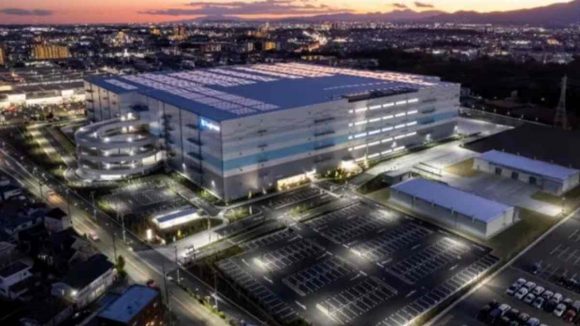Over the next decade, the Japanese property group Mitsubishi Estate will inject $3.3 billion into the economy by developing logistics facilities. Financial newspaper Nikkei reports that the property group wants to build a warehouse to store automobile batteries or accommodate self-driving trucks.
This is a significant investment of nearly four times the previous decade’s. Nikkei believes a portion of the funds will go toward building specialized facilities to house EV batteries. At the moment, there are fierce debates about fire hazard complaints. For now, these batteries are unsuitable for storage in conventional warehouses.
Last-mile delivery with EVs is the future for sustainability and greener economies.
The future of EVs
Mitsubishi Estate says it will soon operate from a logistic center in Zama, Kanagawa. It has a massive floor space of 178,700 square meters. The facility reportedly has fireproof walls, pillars, and other features to keep EV batteries safe.
There are plans to expand this type of logistic center in Kanagawa and Saitama in Japan. This is all linked to the increasing demand for EVs. According to Nikkei, the plan is also to build facilities that accommodate autonomous vehicles.
Why EVs are catching fire
According to Australia’s defense department, a report that looked into the fire safety of electric vehicles found that EVs are less likely to catch fire than Internal Combustion Engines (ICE).
Here are some facts to consider about EV fire safety risks:
- A battery under 50% charged is less likely to ignite.
- Thermal runaway is how all EV battery fires start.
- An EV lithium traction battery burns hotter than an ICE vehicle.
- It’s not smoke; it’s a vapor cloud of highly flammable gases.
In September, five vehicles were destroyed at Sydney airport after an electric vehicle’s lithium-ion battery ignited.
ALSO READ: Generative AI used in battery development
Experts started raising concerns over ‘lower quality lithium-ion batteries’ entering the market, increasing the fire risk from charging devices.
The Guardian is quoting associate professor Robert Kerr, flagging a lack of regulation around how the technology is developed as a ‘major’ red light. There is no regulation or education on how people should charge the batteries.
However, Australia’s fire department says in most cases where EVs have caught fire, it was later found that the car battery had been damaged. There is no proof that any EV in Australia caught fire due to charging.
About the author
Mia is a multi-award-winning journalist. She has more than 14 years of experience in mainstream media. She's covered many historic moments that happened in Africa and internationally. She has a strong focus on human interest stories, to bring her readers and viewers closer to the topics at hand.











